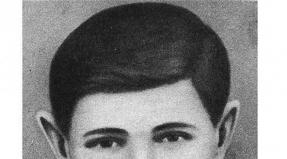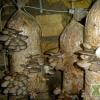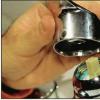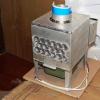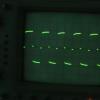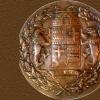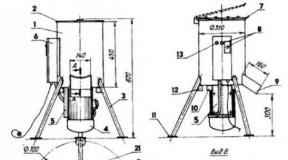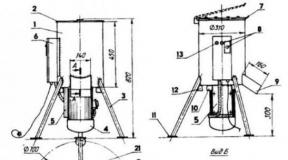F32 depressive episode. F33 Recurrent Depressive Disorder Current Episode Mania with Psychotic Symptoms
"All mental manifestations have a direct impact on the body" Avicenna
Definition
Depression is a mood violation that causes persistent feeling of sadness and loss of interest (Mayo Clinic).
Frequency of urgent visits with depression
Depression Risk Factors (USPSTF)
AdultsWomen.
Young, middle age.
Untusting, divorced, unemployed.
Chronic diseases (Cancer, heart failure ...).
Other mental disorders (including the abuse of psychoactive substances).
Family history mental disorders.
Pregnancy, postpartum period
Low self-esteem.
Unwanted pregnancy.
Stress associated with child care.
Prenatal alarm.
Life stress.
Weak social support.
Lack of husband, partner.
Child with difficult temperament.
Anamnesis of depression.
Previous postpartum depression.
Low socio-economic status.
Older, old people
Disability.
Bad health condition related to somatic diseases.
Complicated loss.
Chronic disorders sleep.
Loneliness.
Anamnesis of depression.
Age and urgent visits with depression

Ballou s, et al. Gen Hosp Psych. 2019; 59: 14-9.
Causes of mental disorders
Neurotic: Anxious, stress, somatoform.Psychotic: Depressive episode, schizophrenia.
Personal: personality disorder.
Caused by a somatic or neurological disease: Systemic red lupus, hyperthyroidism, hypothyroidism.
Drug-caused: Corticosteroids, reserpine.
Induced by psychoactive substance: Alcohol, drugs.
Depression and mortality after myocardial infarction

Sadhart. Et Al Arch Gen Psychiatry. 2009; 66: 1022-9.
Classification of mood disorders (ICD-10)
Manic episode.
Bipolar affective disorder.
Depressive episode.
Recurrent depressive disorder.
Chronic affective disorders.
Organic affective disorders.
Other mental and behavioral disorders caused by alcohol.
Adaptation disorders.
Depression and disability

Beck a, et al. Ann Fam MED 2011; 9: 305-11.
Criteria of the Depressive Episode (ICD-10)
A. Compliance with the general criteria of the depressive episode:
1. The depressive episode should last ≥2 weeks.
2. The history has never had symptoms that meet the criteria for a manic or hypomaniacal episode.
3. Episode cannot be attributed to the use of psychoactive substance or any organic mental disorder.
B. There is ≥2 of the following symptoms:
1. The depressive mood is reduced to the level defined as explicitly abnormal for the patient, most part almost daily ≥2 weeks and is mainly not dependent on the situation.
2. A distinct decline in interest or pleasure from activities that is usually pleasant for the patient.
3. Reducing the energetic and increased fatigue.
B. Additional symptoms:
1. Reducing the feeling of self-confidence and self-esteem.
2. Unless self-selling feeling or an excessive and inadequate feeling of guilt.
3. Repeating thoughts of death or suicide or suicidal behavior.
4. Violations of psychomotor activity with alarming excitation or intensity (subjectively or objectively).
5. Sleep impairment of any type.
6. Change of appetite (increase or decrease) with appropriate change in body weight.
To determine the episode of a light degree, ≥2 symptoms from the criterion B and ≥4 symptoms of the amount of criteria b and in; For episode middle severity ≥2 symptoms from the criterion b and ≥6 symptoms of the amount of criteria b and in; And for a heavy episode, it is necessary 3 symptoms from the criterion B and ≥8 symptoms of the amount of criteria B and V.
Criteria for recurrent depression (ICD-10)
There is at least one depressive episode in the past, larging ≥2 weeks and separated from the present episode by a period of ≥2 months, during which any significant affective symptoms were observed.
The history has never had hypomanical or manic episodes.
Episode cannot be attributed to the use of psychoactive substance or any organic mental disorder.
Tactics for the treatment of a depressive episode

Diagnosis wording
DS: Recurrent depressive disorder, easy episode.DS: Depressive episode functional dyspepsiaPostprandial Distress syndrome.
DS: IBS: Myocardial Infarction (2015). Stable angina II FC.
Related DS: Prolonged depressive reaction.
Who should treat depression?

Olfson M, et al. Jama Intern Med. 2016; 176: 1482-91.
Antidepressants
Heterocyclic antidepressantsAmitriptyline 25-150 mg.
Imipramine 25-150 mg.
Klomipramine 25-150 mg.
Pipophhesine 50-200 mg.
Selective inhibitors Reverse seizure of serotonin
Paroxetine 20-40 mg.
Sertraline 50-100.
Fluvoxamine 50-300 mg.
Fluoxetine 20-40 mg.
Escitalopram 10-20 mg.
Inhibitors of the reverse seizure of serotonin and norepinephrine
Venlafaxin 37.5-225 mg.
Duloxetine 60-120 mg.
Milnacipran 100 mg.
Noradrenergic and serotonergic
Mianserin 30-60 mg / day.
Myrtazapine 15-45 mg / day.
Reversible monoaminoxidase inhibitors
Moklobeide 300 mg.
Parlidol 100-150 mg.
Other groups
Agomelatin 25-50 mg.
Vortiothine 10-20 mg.
John's wortforward 1 capsule.
Trazodon 75-300 mg. 
Indications for antidepressants
Depressive disorders.
Alarm disorders.
Ossessive compulsive disorder.
Insomnia.
Nervous anorexia.
Bulimia.
Chronic pain (cancer, diabetic neuropathy).
Migraine, headache Voltage.
Chronic fatigue syndrome.
Hyperkinetic disorder.
Chronic itch.
Premstructive dysforic syndrome.
Climacterquater tides.
An irritable bowel syndrome.
Functional dyspepsia.
Commitment to antidepressants and mortality in patients with IBS

Krivoy A, et al. Brit J psych. 2015; 206: 297-301.
Principles of treatment
The effect of antidepressant is estimated not earlier than 2 weeks.
The duration of antidepressant therapy is 6-9 months or more.
Recurrent depressive disorder is one of the most difficult in terms of diagnosis. This depression of one degree or another, which lasts a long term - from the 3rd months to a year, with the periods of remission in 1-2 months. This is usually a relapse of the classical depression. Recurrent depressive disorder on the ICD 10 is diagnosed on two species - the main group and additional. The complexity will become clear when considering the first criterion of the main group.
Depressive recurrent disorder most often is a relapse of depression
- First criterion - this is low level Mood, which lasts at least 3 months and is not associated with the surrounding factors. However, the symptoms have a property to disappear by themselves for a period of 1-2 months. Evaluates all this man himself. His own estimate is always subjective. It is sometimes difficult for us to sort out our emotions. We add to this that it is not excluded the possibility of some stress, a stable stress environment that can change the mood of anyone. As a result, we get such a picture. The husband constantly drinks, at work in trouble, there is little money. We put yourself in the place of a woman. Ideally, it would be necessary to find another, change the work and somehow wonderfully get rich. But not advise this patient like this right away?
- Second criterion - This is a loss of interest in the classes that previously brought the joy and loss of the ability to worry, which lasts the same period. Well, if before there were such classes that joy were brought, otherwise, after all, some of them are for life. And here we will face the difficulty of differentiation with Distimia.
- Third criterion - constant decay of forces, such a state that is sometimes called syndrome chronic fatigue. It should be observed at least 2 months. Everything is generally clear. Only there is one "but". The loss of forces can occur due to a variety of reasons, including somatic diseases. This means that, ideally, it would be necessary to undergo a comprehensive examination from the doctors of various specializations.
While adding one more complexity, and then we turn to additional features. It is that the quality of remission can be low. Mostly changes the state, but a subjective assessment of a person's person. In some case, he thinks that the past week flew somehow Durick. And then decide that nothing terrible. It was not so much done, and nothing happened badly.
Additional signs
- Sustainable pessimism and nihilism in views.
- The constant feeling of guilt, the tendency to self-causing, the feeling of its worthlessness against the background of a general alarm.
- No adequacy in relation to yourself. Preferably, this is expressed in a negative look, disbelief in their strength and low self-esteem.
- Difficulty with focusing on something, partial or complete loss of ability to make decisions.
- Bad appetite and sleep disorder.
- Possible thoughts about suicide.

With depressed recurrent human disorder, suicidal thoughts can attend
This set of criteria is practically no different from those used in the diagnosis of depression in any case. Depressive recurrent disorder can also be light, medium and heavy shape. The only difference is that episodes become rooted, lasts for a long time and turn into something stable, constantly present in a person's life. Why and was about difficulties in distinguishing with the Distimia.
The main problem is that at the same time, psychotic symptoms are also observed - nonsense and hallucinations. And no one will ever say that it is exactly the accuracy.
- First, difficulties in differentiation with schizophrenia are simply guaranteed. Longs for a long time, and the symptoms of depression themselves are the same negative symptoms of schizophrenia.
- Secondly, absolute methods of differentiation of nonsense does not exist. In schizophrenia, it most often fits into some of its own, special standards, and the symptom complex itself should be much richer.
The productive symptoms are always in the first place, and in the case of recurrent depression, nonsense and hallucinations only accompany the mood disorder, only occasionally appear. True, the spectrum itself schizophrenic disorders is quite wide, sufficiently to think about the fact that it is "poor symptoms" of schizophrenia or depression with psychotic symptoms, a classical paranoid form or something else?
This is one of the reasons that the rubric "Recurrent depressive disorder", with the CCC code 10 F33, the phenomenon occurred quite often, but with psychotic symptoms it is found in the diagnosis much less often.
Differentiate RDDs with schizoaffective disorder and all affective organic type disorders. Here is the last to do and easier and more expedient.
Recurrent Depressive Disorder: Treatment
It is treated in the same way as all that is treated. However, such cases in order for someone to cure very little. It is mainly due to two reasons.
For many months, otherwise years, the state of depression becomes familiar and ordinary for a person. He persistently "forgets" about how it was before, it does not believe that it was possible as it was before. Therefore, any therapy rests on the lifestyle and the usual way of thinking, actions. To antidepressants I. comprehensive therapy They gave their fruits to change something in themselves and rebuild life so as to reduce the number of factors stimulating the depressive state. And considering that many patients or customers have long been "treated" their emotional sphere with alcohol, many smoke, abuse coffee, do not sleep at night, and all this has become a complex of reasons and consequences not yesterday, the situation can be called very complex.

The patient gets used to the feeling of hopelessness and no longer remembers that the world can feel different
The second reason is that you need to practice some methods that could correct the situation. Depression of this species a long time ago tied hands and feet. If she appeared for the first time in his life, then you can always run yourself in the morning, make a charging, and take a walk in the park in the evening. With recurrent form, it is so difficult that it is almost impossible. We took the simplest, elementary from what could be done to exit the state. And meditations, psychological trainings are all beyond reality.
We will only be happy, happy if someone everything turns out and the world will return their paints, but believe that it is unlikely. You can consider such a statement on both sides. As a hint that you do not need to spend strength, but also money, and it is better to continue to sit in your shell. Or as a provocation to performing heroic actions that change themselves and their world. Everyone will choose something for himself that it is more convenient or better.
It has no sense to tell about the general principle of therapy. The same as in the treatment of depression in all its classical and exotic forms. The treatment diagram depends on the individual characteristics of the patient and characteristic signs This case. If depression is sustainable to medicines, they are or canceled at all, or together with them are prescribed drugs that increase their actions.
Focus on general principlesyou need to know and understand the patient yourself. Good benefit It has a ballast reset method. This is all that it has or clearly negative properties or rather negative. For example, you discover that we spend the time too often in someone's society, trying to pour out the soul, but something does not "strengthen" in any way "and does not get better. Refuse such conversations, meetings with such people. It's not about what you need to quarrel with your friends. However, sometimes the circle of our communication is only in harm to us and those with whom we communicate. Make a pause is quite reasonable.
You have habits that have become the second nature, but without all this you can do it? IN modern world The role of such very often play social networksAnd rather, the many hours there. And the communication in the full sense is impossible to name, and there is no sense, but people comment on hours for hours. Often in such commentaries are traced features of addiction. It is clear that it is not easy, but you need to end.
And so, step by step should clean your life from any "weeds". What is good such an approach. Man in depression. It is difficult for him to do something. That she and depression. And he is advised to do something. We offer first throw away, clean, not-do.

People suffering from this disorder recommend limiting communication in social networks
Ladwards so a month - constantly throwing out everything that is alarming or reminds of addiction, so you will see how easier it will be. Ballast is all that he takes energy that you need to drag on yourself, not getting anything in return for a psychological sense.
Any psychotherapy is good, which is aimed at changing attitudes to what is happening. Because the depression disorder, and the concept is bordered by the concept of "illness", the attitude towards himself is immediately formed in the context of hospitalism. Let it happen to what is happening. Of course, such a council cannot be brought to the absurd. This is only a hint that the emotional state depends largely on how we treat it.
In the depths of the psyche, depression is always connected with the fact that a person has some frustrated needs. From the need of money to the need to get answers to global philosophical questions. The most interesting thing is that we always know exactly what needs we have not received satisfaction to such an extent that it is unpleasant to think about it. What is the case? In the fact that incorrect methods of satisfaction are selected.
At the very level looks like this. Man from school years wanted to be a historian or artist. But parents insisted, or for some reason, - became an accountant or chemist. When imposing something else - conflicts at work, salary delays and the like, an insoluble contradiction occurs. It is certainly solvable, but not everyone can redo his life in adulthood. It may concern any aspects - love, some social, family. As a result, antidepressants can help, but they play mostly the role of temporary. Conflicts at work or failure in love they do not heal.

The reason for the disorder may be the absence of self-realization in life
Here are these problems and must solve complex psychotherapy. Ideally, such a distribution of forces should arise - the antidepressants help to get out of the most gloomy state that the hands are fighting, the psychologist consults, shows how best to think, if necessary, solve some problem, and the patient himself takes decisions.
Depression - a sense of despondency, often accompanied by loss of interest in its own existence and a decrease in vital energy. More often women suffer in 20 years and older. POSSPOSPOSITION K. depression Sometimes is inherited. Risk factor - social isolation of man.
Despondency - Completely predicted human response to unfavorable situation or personal failures. This feeling can own a person for quite a long time. On the development of depression, it can be said when the feeling of the lack of happiness is enhanced and everyday life It becomes painful.
Among women depression develops 2 times more often than in men. In some cases depression spontaneously passes for several days or weeks. Other patients may need support and professional help. In the development of severe depression Hospitalization may be required, so as not to give a person to fall or hurt himself.
Depression Often accompanied by symptoms of anxiety states.
The factor that posted the beginning of the disease is often some form of loss, such as, for example, a breaking of close relationships or loss of a loved one.
Mental trauma, experienced in childhood, such as the death of one of the parents, in the future can increase susceptibility to depression. Depression some somatic diseases, or, neurological diseases, for example, or complications after stroke, and illness endocrine systemFor example, and. Depression May be caused by some psyche disorders. These include, or. Some people feel depressed and despondency only in winter, such a state is known as a seasonal affective disorder. Depression can also manifest as a side effect of certain medicinal preparations For example, steroids and.
Other symptoms of depression include:
Loss of interest in work, inability to rejoice in leisure;
Reduced vital activity;
Bad concentration;
Reduced self-esteem;
Guilt;
Plasticity;
Inability to make decisions;
Early awakening and inability to fall asleep or excessive drowsiness;
Loss of hope for the future;
Periodic thoughts of death;
Weight loss or, on the contrary, its increase;
Reduced sexual attraction.
Elderly people can also have other symptoms, including confused thoughts, the esicles and personality changes, which may be mistaken for senile dementia.
Sometimes depression It is manifested through somatic symptoms, such as fatigue, or leads to somatic disorders, such as constipation or headaches. Persons suffering from severe form depressioncan see or hear what does not matter in reality. Depression It may be alternating with Euphoria periods, which is typical of people with a bipolar form of disorder.
If a person suffering depression, Meets sympathy and support from loved ones, and its illness has a soft shape, its symptoms may disappear by themselves. In almost every case depression gives away effective treatmentAnd the patient should not be tightened with a visit to the doctor if he continues to feel depressed. In medical reception, the necessary surveys are conducted and blood is being taken to ensure that the patient's decrease in the patient's disability and mood is not associated with a somatic disease.
If a depression Diagnosed, patient can prescribe drug treatment, psychotherapy, or a combination of the first and second methods. In some severe cases depression Electro-conciliation therapy can be used. Usually the patient is prescribed a course. There are several groups of such medicines, and the doctor's task is to choose from them one that is most suitable for a particular case. Despite the fact that some of them have undesirable side effects, their action on the main disease (depressive condition) It may be very useful. The patient's mood is usually improved after 4-6 weeks of reception, although some other symptoms may disappear faster. If it fails to achieve any positive effect after 6 weeks of treatment or if its side effects on the patient causes problems, the doctor can adjust the doses of the drug or replace it with others.
Even depression retreated, the patient should continue the reception for so long as the doctor advises. Medicia treatment usually requires at least six months, and its duration depends on gravity depressive symptomatics And on whether the patient was transferred depression Previously. If the reception is to stop the deadline, depression may return.
The patient needs support for the doctor and other medical professionals. Your doctor can send you a course special treatment, such as cognitive psychotherapy, which will help the patient get rid of negative thoughts, or psychotherapy based on psychoanalysis, which will determine the reasons depressive state patient.
In rare cases can be applied electroponvulsive therapy (ECT). In the course of this procedure that passes under general anesthesia, discharge electric currentemitted by two electrodes fixed on the patient's head passes through the human brain and causes short-term seizures over the month of treatment with approximately 6 to 12 electrostop sessions. This type of therapy is used mainly for treatment. depressionaccompanied by hallucinations.
Appeal effective method treatment for 75% of patients suffering depression. If medication therapy is used in combination with psychotherapy, often symptoms depression It is possible to remove completely for 2-3 months of treatment. As for the people who passed the ECT course, in 90% of cases recovery comes.
In addition, the following activities should be held to facilitate the state of the patient:
Draw up a list of what needs to be done every day, starting from the most important;
Every time we take only in one thing, noting achievements on its completion;
Daily give a few minutes to sit down and relax, while slowly breathe deeply;
Regularly engaged exercisethat will help weaken stress loads;
Eat health careful;
Find yourself entertainment or hobby that will distract from experiences;
Join the mutual assistance group to meet with people who are experiencing similar problems.
Hello everyone! Recurrent depressive disorder is a fairly common disease, in which a person suffers only episodically. That is, moments feels healthy and happy, after which the condition deteriorates, causing all the symptoms of depression, after which it comes again to the normal period before the return of exacerbation. And today we learn that it causes him, and how to recognize it.
General characteristics and symptoms
This mental violation is made in International Classification Diseases of the tenth revision, abbreviated it is called MKB -10. Various diseases In it under definite codes, and the recurrent depression belongs to F33. Severity degrees are recognized due to the subclass.
For example, an episode of a hard degree without psychotic symptoms - F33.2. Usually lasts from a few weeks and a maximum of several months, after which it comes to relief, the state improves and restores until the next episode comes.
The very flow of exacerbation may sometimes be inconspicuous, depends directly from the lesion stage. There are situations when, along with the symptoms below, a manic disorder arises (temporary elevated excitability, Up to the acceleration of speech), then experts are diagnosed with bipolar affective disorder.
What features can be diagnosed
- Personality feels constant fatigue, although there are no causes for fatigue, that is, additional loads, work, workouts or diseases. From the morning, only opening his eyes, she understands that the energy in the body is minimal.
- The mood, respectively, is stably reduced. Pain, sadness, sensation of emptiness inside and lack of hope for positive changes and improvements can be tracked.
- Ensures interest and pleasure to something that was previously pleased. That is, it ceases to worry work, hobby, relationship with loved ones.
- It can also be noted that the self-assessment of such a person falls along with his mood. That is, he sharply and unfortunately ceases to believe in itself and his strength.
- Aggression and anger sends inside, constantly condemning himself for any misconduct, behavior and even thoughts. But not just condemns and criticizes, but also harms, in the form of damage to the body, up to the commission of suicide.
- Often there are such symptoms as a decrease in appetite, the emergence of insomnia, or a sleep disturbance.
- Lack of prospects for the future. That is, thinking becomes so pessimistic that a person is able to notice only negative, failure, and also concentrate attention only to them.
- It becomes difficult to concentrate on even completely simple thingswhich previously did not cause difficulties.
- Sometimes it can be noted that the personality has become closed and unavalious, irritable. Unexpectedly, the wrath flashes show all, and it reacts powerfully on all sorts of little things.
- It makes itself felt somatic, that is, the physical sensations of unclear origin. For example, migraine, abdominal pain, joints, muscles, although on the state of health problems with organs in which discomfort occurred is not. Suddenly, sexual interest disappears, that is, Libido is reduced.
- The thinking process slows down, and the patient becomes difficult to calculate and solve those tasks with which they usually coped with light.
- The complexity manifests itself in the fact that a person often after visiting a specialist who has appointed a certain treatment increases the dose of receiving antidepressants, counting on the fact that mood and well-being will improve much faster. This is very dangerous and causes a number of symptoms testifying to the overdose of drugs.
Degree in μb-10
- Light degree F33.0.
Without somatic manifestations, or if they are, it is clearly not expressed.
With somatic manifestations, when a few heavy and complex, or more than 4, but minor. - Average F33.1. It is characterized as in the previous embodiment, with a small difference - to the main features (the first three specified), several additional are added.
- Heavy F33.2 (without psychotic symptoms), and, respectively, F33.3 (with psychotic manifestations, that is, nonsense, stupor, hallucinations, etc.).
- Remission. Diagnosed in the case when a patient was recorded several episodes of recurrent depression, but for several months his well-being is consistently well and does not cause suspicion.
Causes of occurrence
Psychiatry is not particularly able to distinguish accurate causes, but there are a number of factors that have a direct impact on the appearance of this disease.
So, etiological factors:
- Endogenous - genetic predisposition, that is, is inherited.
- Psychogeneic - in the form of a reaction to any psychotrauming event, sometimes even insignificant stress and overwork.
- Organic - Head injuries, transferred infections that gave complications on the brain. Inxication different toxic substances, oncological diseases and so on.
Diagnosis and treatment

Most often amazes women, especially at the age of 40 years. The diagnosis is made in the event of a minimum of two episodes duration of 14 days. The complexity of recognition is similar to a schizoaffective disorder, bipolar. Treatment typically includes the following methods (given the individual characteristics of the patient, as well as the degree of lesion):
And today everything, dear readers! Take care of yourself, and be healthy, as well as in case of doubt about the state of your health, contact yourself to specialists, you should not engage in self-medication, it is not safe.
Material prepared Zhuravin Alina.
4
Recurrent depressive disorder- Disorder, characterized by repeated depressive episodes of a mild, moderate or severe, without anamnestic data on individual episodes of high spirits, hyperactivity, which could respond to the criteria of mania. However, this category can be used if there is data on short episodes of lightweight mood and hyperactivity that meet the criteria of hypologia that follow directly following the depressive episode (sometimes they may be provoked by the treatment of depression).
The prevalence in the population is quite high and in different data ranges from 0.5 to 2%
What provokes a recurrent depressive disorder:
As a rule, to highlight the exact cause of the occurrence of recurrent depressive disorder is rather difficult, among the main etiological factors allocate: endogenous (genetically determined predisposition), psychogenic (depression - the most typical human reaction to mental injury) and organic (residual-organic inferiority, the consequences of transferred neuroinfections, intoxication, head injuries, etc.). The first episodes of recurrent depressive disorder are usually caused by external provocation (more often by psychotrauming circumstances), however, in the emergence and development of repeated phases, factors not related to external circumstances are dominated.
Pathogenesis (what happens?) During the recurrent depressive disorder:
The first episode occurs later than with a bipolar disorder, at the age of about 40 years, although often the disease begins much later. The duration of episodes is 3-12 months ( medium duration about 6 months). The period between attacks at least 2 months, during which any significant affective symptoms are observed. Although the recovery is usually complete in the period between attacks, a small part of the patients detect chronic depression, especially in old age. Usually, the elongation of attacks is noted for late age. Pretty distinct individual or seasonal rhythm. The structure and typology of seizures correspond to endogenous depression. Additional stress can change the severity of depression. Separate episodes of any gravity are often provoked by the stressful situation and in many cultural conditions are 2 times more common in women than in men.
Symptoms of recurrent depressive disorder:
Basic symptoms
- depressive mood;
- reducing interest or pleasure from activities that was previously enjoyed to the patient;
- energy reduction and increased fatigue.
Additional symptoms
- reducing self-esteem and sense of self-confidence;
- dustless sense of self-selling and guilt;
- ideas or actions aimed at self-injury or suicide;
- reducing the ability to concentrate and attention;
- gloomy and pessimistic vision of the future;
- sleep disturbance;
- change appetite.
Diagnosis of recurrent depressive disorder:
The main feature of the recurrent depressive disorder is the presence of repeating depressive episodes (at least 2 episodes should last at least 2 weeks and should be separated by interval of several months without any significant mood disorders). The possibility of a manic episode in a patient with a recurrent depressive disorder cannot be completely excluded, no matter how much depressive episodes are neither in the past. If an episode arises, the diagnosis must be changed to a bipolar affective disorder.
The recurrent depressive disorder can be divided by designating the type of the current episode, and then (if there is sufficient information) of the prevailing type of previous episodes on a light, moderate or severe degree.
Recurrent depressive disorder of a light degree without somatic symptoms (present, but not necessarily, only some somatic symptoms)
Recurrent depressive disorder of easy degree with somatic symptoms (there are 4 or more somatic symptoms, or only 2 or 3, but severe enough)
Recurrent depressive disorder of the average degree without somatic symptoms (somatic symptoms there are only some or no no at all)
Recurrent depressive disorder of moderately with somatic symptoms (there are 4 or more somatic symptoms, or only 2 or 3, but unusually severe)
Recurrent depressive disorder of severe without psychotic symptoms (psychotic symptoms are absent)
Recurrent depressive disorder, the current episode of severe with psychotic symptoms (must be present, hallucinations, depressive stupor). Brad and hallucinations can be classified as appropriate or not matching mood.
Recurrent depressive disorderit is characterized by the presence of a minimum of two main symptoms and two additional symptoms. Divided by
Recurrent depressive medium degreeit is characterized by the presence of a minimum of two main symptoms and three to four additional symptoms. Divided by
Recurrent depressive disorderit is characterized by the presence of all major symptoms and four or more additional symptoms. Divided by

